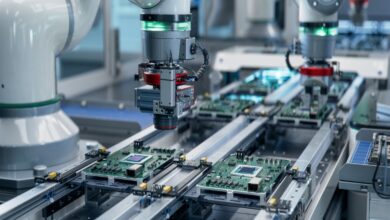SAP Shapes the Future of Data-Driven Business Transformation to Help Customers Succeed in the Era of AI

SAP announced transformative data innovations that will help customers harness the full power of their data to drive deeper insights, faster growth and more efficiency in the era of AI. New capabilities in the SAP Datasphere solution, including new generative-AI features, transform enterprise planning through simplified data landscapes and more-intuitive data interaction.
“Capturing data to make better decisions is an enterprise technology imperative that’s become increasingly critical as AI – which relies on quality data – revolutionises every aspect of business,” said Juergen Mueller, SAP Chief Technology Officer and member of the Executive Board. “Our newest SAP Datasphere innovations, as well as an expanded partnership with Collibra, represent a quantum leap in our ability to help customers drive intelligent business transformations through data.”
At the heart of these announcements is the business data fabric, an architecture that helps ensure data is not just an asset but also the core underpinning of strategic initiatives. The innovations and partnership announced today equip organisations to deliver meaningful data to data consumers – with business context and logic intact.
“We have decided to leverage SAP Datasphere for a modern business data fabric architecture in conjunction with our SAP S/4HANA landscape. It allows us to effectively establish a modern data analytics platform that enables a business self service capability on the basis of trusted data and data models,” said Achim Welter, Senior Director ERP, Digital & IT Strategy, Hershey’s.
Today’s SAP Datasphere innovations help customers achieve a unified data view that simplifies their data landscapes while retaining context and logic – enabling them to adapt faster to market changes and make more-efficient decisions.
From new copilot and vector database capabilities that help ensure business context remains constant in generative AI outputs to a new knowledge graph that helps uncover insights and patterns in complex data, SAP’s data innovations help ensure customers have the full power of their data at their fingertips.
Today’s key innovations include:
Generative-AI Copilot and AI Governance
SAP’s generative-AI assistant, the Joule copilot, is now coming to the SAP Analytics Cloud solution to automate the creation and development of reports, dashboards, plans and more. This automation is enabled by the SAP HANA Cloud vector engine capabilities, which combine the power of large language models with the relevant data of your organisation – helping ensure business context is a constant for generative-AI outputs.
Incorporating generative AI across the business isn’t possible without trusted and governed data. To provide organisations with a solution to govern the policies, processes and practices of AI, SAP is announcing an expansion of our partnership with Collibra to integrate Collibra’s AI Governance with SAP data assets. This can help provide transparency and accountability for organisations and help ensure regulatory, compliance and privacy policies are met.
Discover Hidden Insights and Patterns with Knowledge Graph
With the new SAP Datasphere knowledge graph, organisations can discover hidden insights and patterns across their applications and systems. This enables both technical and business users to deeply understand the relationships between data, metadata and business processes, as well as boost the effectiveness of machine learning and large language models.
 Unified and Advanced Planning and Analytics
Unified and Advanced Planning and Analytics
The new SAP Datasphere integration with SAP Analytics Cloud offers a single data management system and advanced analytics to power cross-organisational planning. Planners can leverage a single flexible model to break down silos between planning using one tool for data preparation, modelling and planning.
Additionally, business users can use the new compass capability in SAP Analytics Cloud to realise better outcomes in planning and analytics through data-driven simulation. It enables organisations to run complex simulations using a chat interface to evaluate predictive outcomes and continually adjust controllable variables to find the optimal plan.
This supports customers to transform their planning by unifying financial, operational, supply chain and workforce planning with native connection to SAP applications and third-party data.



